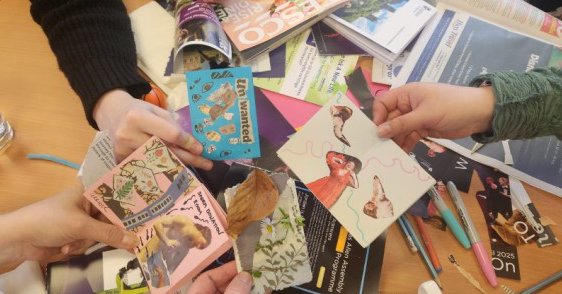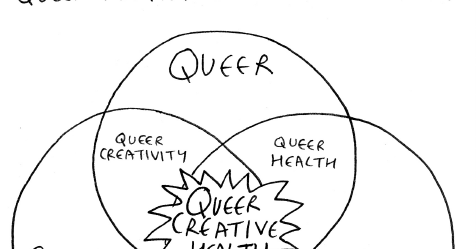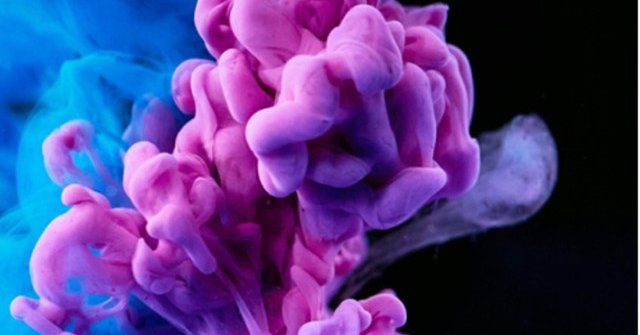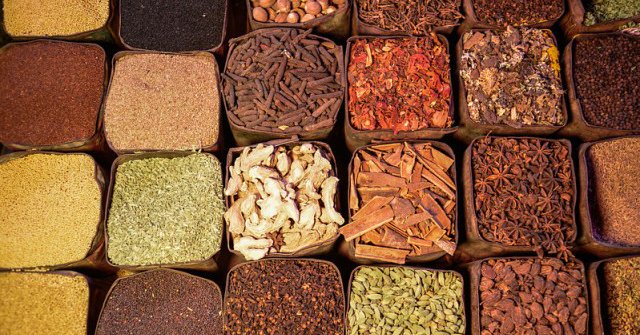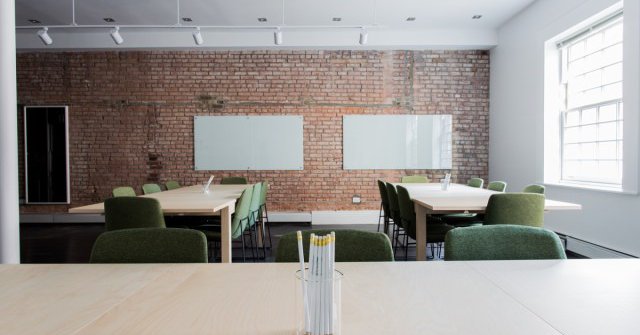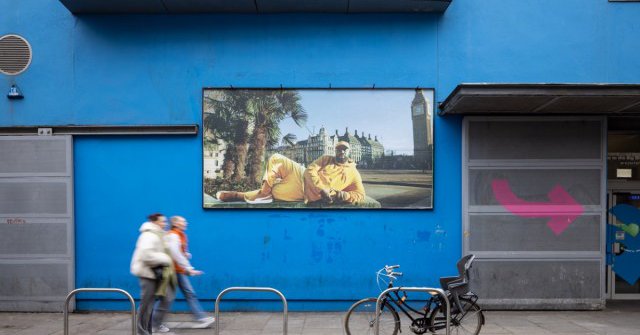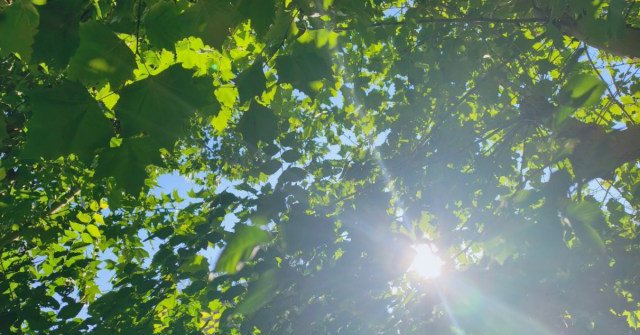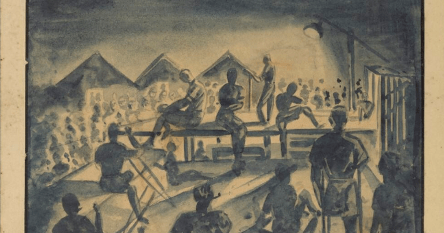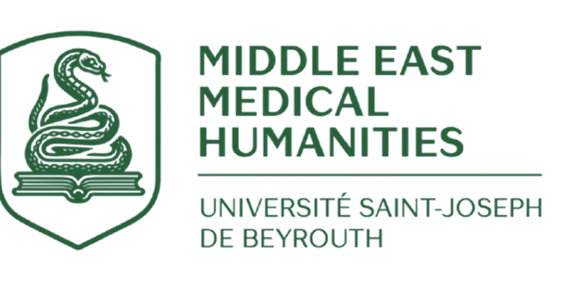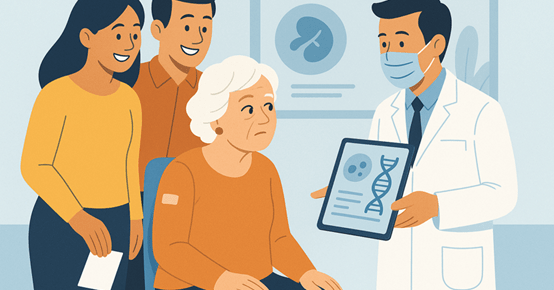
The Polyphony
@the_polyphony
Followers
9K
Following
2K
Media
388
Statuses
10K
To stimulate, catalyse, provoke, expand and intensify conversations in the critical medical humanities. Hosted by @DurhamImh
Durham, UK
Joined April 2011
The Polyphony is moving to bluer skies. We'll be here for a while longer but please do follow us over at the other place.
0
3
4
Filipa Teixeira considers the notion of (mis)fitting within higher education and reflects on what is needed to craft spaces where diverse groups of researchers can "fit together well" while creating productive and lasting connections.
thepolyphony.org
Filipa Teixeira considers the notion of (mis)fitting within higher education and reflects on what is needed to craft spaces where diverse groups of researchers can “fit together well” w…
0
0
4
Shruti Ghosh explores zine making as a method for "queering" knowledge production in health research.
thepolyphony.org
Shruti Ghosh explores zine making as a method for “queering” knowledge production in health research.
0
0
2
Atholl Kleinhans reflects on how the Queer Medical Humanities PhD School helped him to find an "epistemological home" that embraced both his research and his multifaceted identity.
thepolyphony.org
Atholl Kleinhans reflects on how the Queer Medical Humanities PhD School helped him to find an “epistemological home” that embraced both his research and his multifaceted identity.
0
2
2
Sharanraj Krishnan discusses how his engagement with the Queer Medical Humanities PhD School prompted him to ‘re-enter’ the ‘field’ and reexamine the positionality of the “I” within his research.
thepolyphony.org
Sharanraj Krishnan discusses how his engagement with the Queer Medical Humanities PhD School prompted him to ‘re-enter’ the ‘field’ and reexamine the positionality of the &#…
0
2
8
Harriet Mossop examines pleasure and pain as entryways into queer auto-theory in this reflection on 'Locating the “I”: autoethnography as queer methodology', a workshop led by João Florêncio and Edyta Just at the Queer Medical Humanities PhD School.
thepolyphony.org
Harriet Mossop examines pleasure and pain as potential entryways into queer auto-theory in this reflection on ‘Locating the “I”: autoethnography as queer methodology’, a workshop led by…
0
1
2
Kirti Verma explores the critical connections between literature, mental health, and the emergence of medical humanities in India through the work of writer, translator, poet, and editor Jerry Pinto.
thepolyphony.org
Kirti Verma explores the critical connections between literature, mental health, and the emergence of medical humanities in India through the work of writer, translator, poet, and editor Jerry Pint…
0
1
1
Erika Pathó analyses the challenges related to the adoption of a Western-designed dietary measure to manage IBS symptoms in India, focusing on patients’ accounts of their experiences of dietary change.
thepolyphony.org
Erika Pathó analyses the challenges related to the adoption of a Western-designed dietary measure to manage IBS symptoms in India, focusing on patients’ accounts of their experiences of dietary cha…
0
0
0
Sally Cross explores her research on medical uncertainty in the context of fibromyalgia and ME/CFS through experimental poetry for our 'In Practice' project:
thepolyphony.org
Sally Cross explores her research on medical uncertainty in the context of fibromyalgia and ME/CFS in this collection of experimental poetry.
0
0
1
Alexander Meienberger examines the ongoing cultural and societal stigmas surrounding HIV/AIDS in Russia, highlighting the efforts of cultural initiatives to challenge these barriers and bring visibility to marginalized voices.
thepolyphony.org
Alexander Meienberger examines the ongoing cultural and societal stigmas surrounding HIV/AIDS in Russia, highlighting the efforts of cultural initiatives to challenge these barriers and bring visib…
0
0
0
Grace Cooke, Lorenzo Meira-Gobel and Rory Hankins ask: what might it mean to approach English for Speakers of Other Languages (ESOL) teaching through the lens of the medical humanities?.
thepolyphony.org
Grace Cooke, Lorenzo Meira-Gobel and Rory Hankins ask: what might it mean to approach English for Speakers of Other Languages (ESOL) teaching through the lens of the medical humanities?
0
2
5
100 years after its publication, Lucyl Harrison argues that Virginia Woolf's Mrs Dalloway should be read as a pandemic novel that contends with the in/articulation of pandemic experience.
thepolyphony.org
100 years after its publication, Lucyl Harrison argues that Virginia Woolf’s Mrs Dalloway should be read as a pandemic novel that contends with the in/articulation of pandemic experience.
0
0
2
Nora and Margret introduce their applied anthropology podcast which explores themes of health technology and society.
thepolyphony.org
Nora and Margret introduce their applied anthropology podcast which explores themes of health technology and society.
0
0
3
Members of the Institute for Medical Humanities' Moving Bodies Lab reflect on a series of talks and workshops exploring what it means to be slow, still, and sedentary.
thepolyphony.org
Members of the Institute for Medical Humanities’ Moving Bodies Lab reflect on a series of talks and workshops exploring what it means to be slow, still, and sedentary.
0
0
1
Dr Fei Li explores the integration of narrative medicine and palliative care at Peking Union Medical College in China.
thepolyphony.org
Dr Fei Li explores the integration of narrative medicine and palliative care at Peking Union Medical College (PUMC) in China.
0
0
0
Eden Rea-Hendrick brings artist and prisoner of war Charles Thrale into the realm of queer medical humanities by asking what his wartime work can reveal about midcentury concerns around gender and disability.
thepolyphony.org
Eden Rea-Hedrick brings artist and prisoner of war Charles Thrale into the realm of queer medical humanities by asking what his wartime work can reveal about midcentury concerns around gender and d…
0
0
1
Informed by her experiences at the Queer Methodologies PhD School, bioethics researcher Debra Carroll-Beight envisions what an ethics of unknowing could bring to LGBTQIA+ Health Research.
thepolyphony.org
Informed by her experiences at the Queer Methodologies PhD School, bioethics researcher Debra Carroll-Beight envisions what an ethics of unknowing could bring to LGBTQIA+ Health Research.
0
0
1
In the first post of our series from the Queer Methodologies in Medical Humanities PhD School, researcher Katie Munday explores the radical potential of joy as a generative process in research spaces.
thepolyphony.org
In the first post of our series from the Queer Methodologies in Medical Humanities PhD School, researcher Katie Munday explores the radical potential of joy as a generative process in research spac…
0
0
2
.@aTinyDisruption describes his theory and practice of relating via the traditional dwelling of the shepherd’s hut in ‘vagabond ways’ to spheres that once seemed inaccessible to him due to neuronormative standards in career development.
thepolyphony.org
Christian Hanser describes relating via the traditional dwelling of the shepherd’s hut to spheres once inaccessible to him due to neuronormative standards in career development.
0
1
3
Pamela Krause and Yvonne Saaybi reflect on the role of the humanities in transforming healthcare in crisis-affected regions, based on their experience as the co-founders of the Middle East Medical Humanities Research Lab in Beirut.
thepolyphony.org
Pamela Krause and Yvonne Saaybi reflect on the role of the humanities in transforming healthcare in crisis-affected regions, based on their experience as the co-founders of the Middle East Medical …
0
1
3
Zhaohang Lyu explores how familial ethics and consumerism shape choices surrounding stem cell therapy in the context of its commercialisation in China.
thepolyphony.org
As biotechnologies continue to evolve, what kind of bioethics can sustain a proper sense of boundaries? Zhaohang Lyu explores how familial ethics and consumerism shape choices surrounding stem cell…
0
0
1


